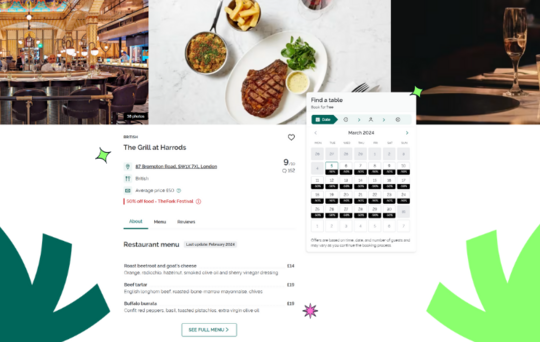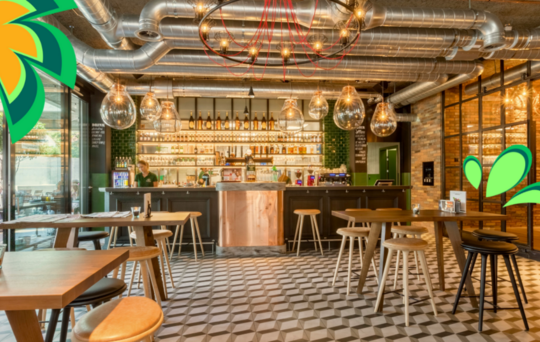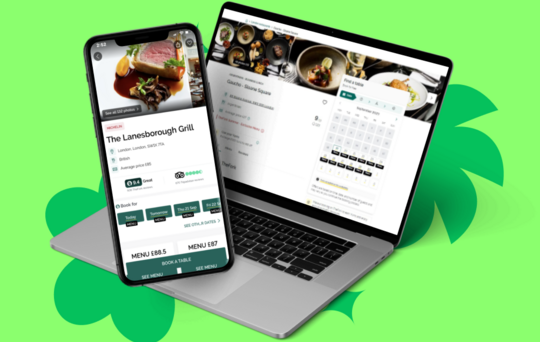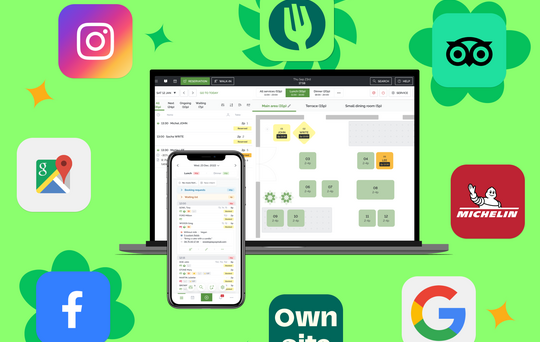Creating a Restaurant Business Plan: Your Ultimate Guide

How to write a restaurant business plan
Deciding to open a restaurant marks an exciting milestone in your business journey. However, before you start designing the uniforms and crafting the dishes, there’s one crucial strategic step to complete: creating the perfect restaurant business plan.
More than just a formality, a restaurant business plan is vital for ensuring the success and sustainability of your business project. With TheFork Manager’s comprehensive guide, you’ll uncover the essential steps for developing your business plan—from crystallising your vision to financial and strategic planning—so you can transform your passion for dining into a thriving and enduring business.
What is a restaurant business plan?
A restaurant business plan is a comprehensive roadmap for starting and operating a restaurant, guiding you through each phase of your venture. The purpose of a business plan for a restaurant is to communicate your restaurant’s objectives, vision, and strategy to external stakeholders, such as investors, who need to understand the potential and direction of your establishment.
The level of detail needed in a restaurant business plan varies depending on the needs of your audience; it’s a good idea to begin with a concise version that captures the essence of your concept, and then expand upon it as necessary. The plan should outline the resources required to ensure the success of your restaurant, including financial investments, staffing, and operational strategies, providing a clear framework for achieving restaurant success.
Why a restaurant business plan is the cornerstone of your success
An effective restaurant business proposal outlines your restaurant’s structure and long-term vision and serves as a solid foundation for building and growing your enterprise.
When done well, it’s a strategic tool that solidifies your vision, highlights your goals, and charts the path toward realising your ambitions. It also allows you to anticipate and address the specific challenges of your business by providing innovative and tailored solutions.
More importantly, a well-crafted and clear restaurant business plan is crucial for convincing investors of your project's viability. In financial terms, it guides you in budget planning, cost management, and revenue estimation while offering the flexibility you need to adapt to market fluctuations.
Try TheFork Manager today
Key components of a successful restaurant business plan
When it comes to building a restaurant business plan, you need to balance several elements, each of which plays a key role in defining and ensuring the future success of your restaurant.
Make a great first impression with the executive summary
Just like when customers first step foot into your restaurant, starting a restaurant business plan with an exceptional executive summary is your first opportunity to make a great impression. This is your chance to offer a concise and compelling project overview that immediately captures the attention of your investors, bankers, and partners.
It should summarise the essential points of your business plan: your restaurant's unique concept, the goals you aspire to achieve, the strengths that set you apart in the competitive landscape, and your strategy for attracting and retaining customers. The executive summary is the opening line in a fruitful dialogue with your stakeholders that will set the tone for the rest of your restaurant business plan.
Showcase your team’s talents
By offering a detailed presentation of your team in your business plan, you’ll highlight the competence and expertise of each member as well as the collective strength that will drive your restaurant. Describe your staff’s unique skills and experience, highlighting the necessary technical skills as well as the teamwork and corporate culture you wish to establish.
Present your project’s vision
To attract interest and, ultimately, investment in your project, you need to communicate your vision clearly and enthusiastically.
This section of your restaurant business plan should capture the essence of your establishment. Provide a detailed description of your restaurant’s concept, including the inspirations, themes, cuisine type, and the overall experience you want to offer your customers. This is also your opportunity to articulate the ambience and design you envision, highlighting how these elements fit into the local culture and current dining trends. Your vision should be both inspiring and realistic, demonstrating a profound understanding of what makes a restaurant successful and what will appeal to your target audience.
Set out a clear business and economic strategy
Regardless of how polished your vision and concept are, your restaurant business plan won’t impress your stakeholders without a robust business and economic strategy.
This strategy should detail how you intend to position your restaurant within the market, attract and retain clientele, and generate revenue. Demonstrate that you’ve done thorough market research to understand current trends and anticipate customer needs. Address your approach to pricing, advertising, and service delivery. Additionally, explain how you will manage your day-to-day operations to maximise efficiency and profitability.
This section should reflect a comprehensive understanding of the restaurant market and illustrate how your establishment will meet customer needs and expectations while distinguishing itself from the competition.
Secure your future with a thoughtful legal structure
Choosing an appropriate legal structure is vital for the protection and growth of your restaurant. This part of the restaurant business plan should clearly outline your chosen legal business form, whether that’s a corporation, sole proprietorship, or another structure.
Discuss the tax implications, legal responsibilities, and asset protection associated with each option. Also, consider how this structural choice may impact future decisions, such as expanding your business, partnerships, and investment opportunities. A well-chosen legal structure not only provides security for your business but also serves as a solid foundation for its growth and evolution.
Anticipate your growth through financial forecasts
No restaurant business plan can thrive without detailed financial forecasts that demonstrate the viability of opening your restaurant.
This section should provide an in-depth analysis of all the ins and outs of restaurant planning. This includes projected revenues, startup costs (including location choice and obtaining a restaurant licence), operating expenses, and cash flow projections. Present realistic and well-founded estimates based on thorough market research and analysis of industry trends. Your financial plan should include a profit and loss statement and cash flow projections.
Include best and worst-case scenarios to show how your restaurant might perform in different economic conditions. These projections for the coming months and years will help convince potential investors of the financial strength of your business and its potential to generate revenue — as well as your capabilities as a savvy business owner.
Complete your portfolio with appendices
The appendices of your restaurant business plan are a chance to provide additional information and concrete evidence that supports your project. They can include detailed menus, interior design plans, market studies, resumes of team members, or agreements with suppliers. Appendices add depth to your plan by offering details that might be too extensive for the main body of your document. They create a comprehensive and detailed picture of your vision and launch plans for your stakeholders.
To craft a truly outstanding restaurant business plan, you must focus on aspects that will excite and inspire confidence among your investors. Present a unique and well-defined restaurant concept, demonstrate realistic financial projections, highlight how your restaurant aligns with current and future market trends, and show your deep understanding of the industry and your ability to evolve with it.
For the finishing touches, conduct a meticulous proofread of your plan, incorporate enticing visuals where relevant to bring your restaurant to life, and gather helpful feedback from mentors or colleagues.
Once your new venture is up and running, get in touch with TheFork Manager to find out how we can help drive your success. With powerful tools for reservation management, customer insights, and marketing strategies, TheFork Manager is designed to enhance your operational efficiency and help you maximise your restaurant’s potential. An irresistible restaurant business plan will tell a compelling story, blending concrete data with a passionate vision that leaves your stakeholders eager to experience your new venture.















